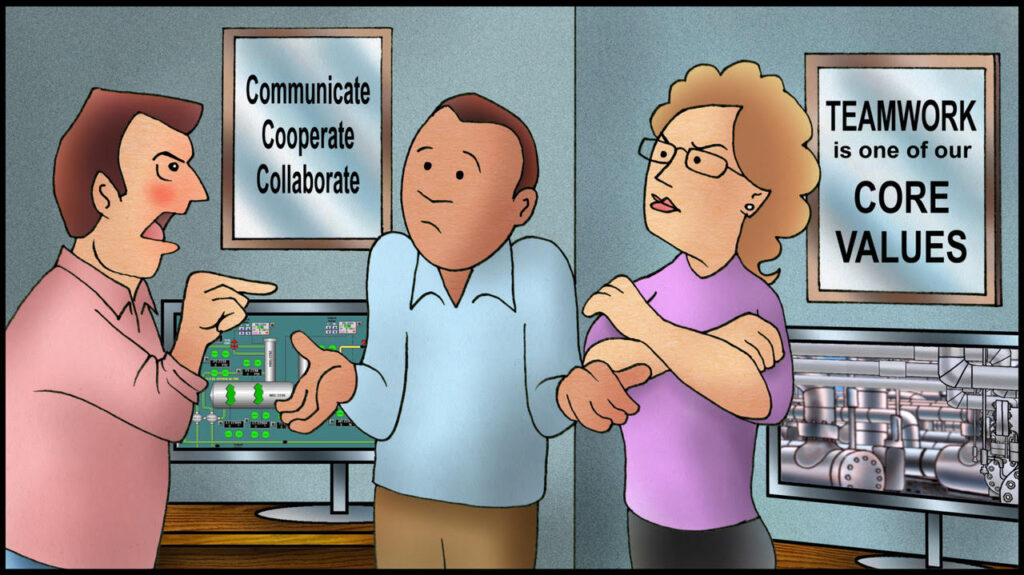We were providing Control Room Management training a few months ago. We asked the participants to rate, on a scale from 1 to 10, the working relationships between the Controllers, Shift Supervisors, SCADA personnel, and Managers. These 50 people had ratings from 8 to 10. How are the working relationships in your control room? That is where you practice teamwork.
I once managed, with little success, a team of 25 operators and technicians. We had some good individual performers. But the four shift teams, the utility operators, and the technicians were more concerned with their work groups and individual needs than with the overall goals of the team. Unfortunately, the overall Lack of Teamwork contributed to errors, spills, tank overflows, equipment damage, and financial costs. It took a succession of two managers after me and changes in the team membership to achieve good performance. I still consider this managerial stint one of my greatest failures. Does your work group focus on team goals or on individual achievement?
Let’s consider pipeline accidents where Lack of Teamwork contributed to the outcome. In two investigations, the NTSB concluded that inadequate team performance contributed to inadequate responses by the Control Center in two ruptures. As a result, the NTSB recommended to PHMSA that they “Develop requirements for team training of control center staff involved in pipeline operations similar to those used in other transportation modes. (P-12-7).”
PHMSA developed a new CRM regulation requiring “control room team training for controllers and those who collaborate with them.” I have been amazed at the different approaches being taken, most of which do not seem to satisfy the regulatory intent. If one looks at Crew Resource Management training guidance used in other transportation modes, it includes these elements:
- Learning to function as members of teams, not as a collection of technically competent individuals.
- Instructing how to behave in ways that foster crew effectiveness.
- Providing opportunities to practice the skills necessary to be effective team leaders and team followers.
- Training on effective team behaviors during normal, routine operations.
When I work with teams, I ask them to address these items for effective teamwork:
- Clarify the team purpose and goals.
- Have an effective team plan that identifies team customers.
- Clearly define the roles and responsibilities.
- Establish ground rules for team behaviors.
- Practice clear communication with regular feedback.
- Reward good team behavior.
- Punish poor team behavior.
- Use well-defined decision making procedures.
- Achieve balanced participation with no superstars.
- Be aware of the group dynamics that affect relationships and tasks.
All could be addressed in a CRM plan, in Control Room Guidelines, or a team charter. In fact, we include “General Responsibilities” in CRM Plans that address some of those items. And we emphasize all of them in the Team Resource Management courses we teach.
Like my management failure, I often say I have been teaching and preaching teamwork to pipeliners since the 1990s with unknown success. Sometimes I feel like John the Baptist, a voice crying in the wilderness not knowing if anyone listens or takes heed of the message. Have you? Will you? I guess I will keep preaching as long as I am able.
THE FILTHY 15 EDUCATIONAL PROGRAM | Charles Alday © 2021 Please Distribute to Others.




